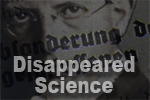The history of democratic transformation after 1989 section
Hlavní stránka » pages » Departments » The history of democratic transformation after 1989 section »
This section deals with historical research after 1989. Unlike previous epochs of Czech, Czechoslovak and Central European history, this particular period is not marked by any significant milestones, as, for example May 1945 or November 1989. Rather, researchers are confronted at one and the same time with both the actual living present, and with continuity in the political, economic, social and cultural spheres. Historiographers make productive use of the rich supply of findings from other specialized social sciences, such as sociology, political science and political economy, by re-locating such data to the field of historiography and then examining them afresh by applying the method of historical analysis. The primary focus of research of this section is towards three linked thematic areas:
- The development and categorization of the political system, parties and other players in the political life of the Czech Republic between 1989 and 2004; political, social and economic thought, and the dispute about the nature and regulation of politics in the 1990s.
- Civil society, the development of the non-profit-making sector and civic interaction, political and administrative decentralization, changes in post-communist society, and how the so-called facing up to national history operated in practice.
- The position and role of Czechoslovakia on the international arena at the time of the fall of the communist regime, the creation of foreign policy in the aftermath both before and after the creation of the autonomous Czech and Slovak Republics, the intra-political dimension, and integration into Euro-Atlantic structures.
The common theme running through each of the discrete research projects of the section is the question of both the possibilities and the constraints intrinsic to the growth of Czechoslovak and Czech democracy in the Central European and European context after 1989. Every democratic community that has originated historically has done so as a result of the interplay of universal aspirations and principles with the cultural-historical determinants inherent in its own particular historical development. Indeed, the only satisfactory way to approach an adequate understanding of any form of democracy is to take into account the historical conditions underpinning it, both those of a general nature and those peculiar to the individual community under study.
Michal Kopeček








